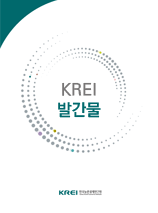- Changes in the Trade of Agricultural and Livestock Products and Implications after Seven Years from the Enforcement of the Korea-EU FTA
-
-
In Year 7 of the implementation of the Korea-EU FTA, the import value of agricultural and livestock products from EU countries is USD 4.33 billion, a 105.1% increase from the average year before the enforcement and a 9.2% increase from Year 6.
– The degree of the opening of the agricultural and livestock market for the Korea-EU FTA that took effect on July 1, 2011 is 96.2%. The impact of reduced tariff has been visible for the recent seven years, while the trade volume of TRQ-applied items has also been on the rise.
– The imports from the EU take up 13% in the total import value of agricultural and livestock products, a 0.3%p increase from Year 6.
– The import value of processed food, fruits and vegetables, and livestock products jumped by 20.4%, 16.6% and 5.9%, respectively, from Year 6. On the contrary, the import value of grains from the EU dropped by 37.9% from Year 6 due to the increased import of U.S. and Russian wheat and the expanded production of corn in the U.S.
As of Year 7, the value of agricultural and livestock products exported from South Korea to EU countries is USD 460 million, up 132.2% from the average year before the enforcement and up 1.5% from Year 6.
– Exports to EU countries account for 6.4% in the total export value of agricultural and livestock products in the country, a 0.39%p decrease from Year 6.
– In the category of agricultural products, the value of fruits and vegetables (oyster mushroom, kimchi, pear) exported to the EU increased by the largest degree. As of Year 7, the value of fruits and vegetables exported to the EU jumped by 19.4% from Year 6.
As of Year 7, the preferential tariff application rate of the imported agricultural and livestock products from EU countries is 84.3%, a 1%p decline from Year 6, while that of such products exported to EU
countries is 51.1%, a 1%p increase from the previous year.
– The preferential tariff application rates of pork and cheese imported from the EU have been on the steady rise every year, now reaching almost 100% (99.9% and 98.9%, respectively).
– The preferential tariff application rates of products exported to the EU are lower than those of imported products. In particular, the preferential tariff application rate of composite food preparations, which take up a large share in the total value of exports to the EU, has been on the steady decline, recording 36.4%, a 0.4%p decrease from Year 6.
In the trade between South Korea and EU countries, the former is specialized in imports, showing an imbalanced structure.
– South Korea’s TSI of agricultural and livestock products is –0.65 in the total international trade and –0.81 in the trade with EU countries, indicating a larger volume of imports than exports.
The government spent KRW 6.7 trillion for the Korea-EU FTA supplementary measures for the recent seven years from 2011 to 2017, with the budget execution rate at 86.5%.
– The supplementary measures resulted in visible outcomes, including the enhanced productivity of livestock farms, reduced expenses, and stabilized supply and demand. -
목차
요약문
In Year 7 of the implementation of the Korea-EU FTA, the import value of agricultural and livestock products from EU countries is USD 4.33 billion, a 105.1% increase from the average year before the enforcement and a 9.2% increase from Year 6.
– The degree of the opening of the agricultural and livestock market for the Korea-EU FTA that took effect on July 1, 2011 is 96.2%. The impact of reduced tariff has been visible for the recent seven years, while the trade volume of TRQ-applied items has also been on the rise.
– The imports from the EU take up 13% in the total import value of agricultural and livestock products, a 0.3%p increase from Year 6.
– The import value of processed food, fruits and vegetables, and livestock products jumped by 20.4%, 16.6% and 5.9%, respectively, from Year 6. On the contrary, the import value of grains from the EU dropped by 37.9% from Year 6 due to the increased import of U.S. and Russian wheat and the expanded production of corn in the U.S.
As of Year 7, the value of agricultural and livestock products exported from South Korea to EU countries is USD 460 million, up 132.2% from the average year before the enforcement and up 1.5% from Year 6.
– Exports to EU countries account for 6.4% in the total export value of agricultural and livestock products in the country, a 0.39%p decrease from Year 6.
– In the category of agricultural products, the value of fruits and vegetables (oyster mushroom, kimchi, pear) exported to the EU increased by the largest degree. As of Year 7, the value of fruits and vegetables exported to the EU jumped by 19.4% from Year 6.
As of Year 7, the preferential tariff application rate of the imported agricultural and livestock products from EU countries is 84.3%, a 1%p decline from Year 6, while that of such products exported to EU
countries is 51.1%, a 1%p increase from the previous year.
– The preferential tariff application rates of pork and cheese imported from the EU have been on the steady rise every year, now reaching almost 100% (99.9% and 98.9%, respectively).
– The preferential tariff application rates of products exported to the EU are lower than those of imported products. In particular, the preferential tariff application rate of composite food preparations, which take up a large share in the total value of exports to the EU, has been on the steady decline, recording 36.4%, a 0.4%p decrease from Year 6.
In the trade between South Korea and EU countries, the former is specialized in imports, showing an imbalanced structure.
– South Korea’s TSI of agricultural and livestock products is –0.65 in the total international trade and –0.81 in the trade with EU countries, indicating a larger volume of imports than exports.
The government spent KRW 6.7 trillion for the Korea-EU FTA supplementary measures for the recent seven years from 2011 to 2017, with the budget execution rate at 86.5%.
– The supplementary measures resulted in visible outcomes, including the enhanced productivity of livestock farms, reduced expenses, and stabilized supply and demand.저자정보
저자에게 문의
구매안내
KREI의 출판물은 판매 대행사 (정부간행물판매센터)와 아래 서점에서 구입 하실 수 있습니다.
판매대행사
- (주)정부간행물판매센터http://www.gpcbooks.co.kr사이트 바로가기
- 서울특별시 중구태평로 1가 25번지
- TEL 02) 394-0337, 734-6818
- FAX 02) 394-0339
판매서점
판매서점 교보문고 http://www.kyobobook.co.kr/ 영풍문고 http://www.ypbooks.co.kr/ 알라딘 http://www.aladin.co.kr/ 활용도 정보
활용도 정보 상세정보 조회 좋아요 다운로드 스크랩 SNS공유 3628 0 13 0 0 -
- Suggestions to Promote the Hometown Love Donation System
- Gouk, Seungyong
- 2022.11.25
- KREI 이슈리포트
-
- Ten Years of Korea-U.S. FTA: focusing on agri-food trade
- Kim, Kyungphil
- 2022.06.09
- KREI 이슈리포트
-
- Impacts of Ukraine-Russia Conflict on Global Grain Prices
- Kim, Jongjin
- 2022.03.31
- KREI 이슈리포트
-
- The Impacts of the COVID-19 on the Korean Agricultural Market
- Seo, Hong-Seok
- 2020.06.05
- KREI 이슈리포트
-
- 10 Agricultural Policy Issues of Korea in 2019
- Jeong, Minkook
- 2019.01.29
- KREI 이슈리포트
-
- State of Korean and Overseas Markets for Environment-Friendly Agricultural Products and Challenges 2018
- Jeong, Hakkyun; Sung, Jaehoon; Lee, Hyeonjeong
- 2018.09.12
- KREI 이슈리포트
-
- Measures to Establish the Water-Energy-Food Nexus for Agricultural Resource Management
- Sung, Jaehoon; Cho, Wonju; Lee, Hyeonjeong
- 2018.09.05
- KREI 이슈리포트
-
- 10 Agricultural Policy Issues of Korea in 2018
- Kim, Byoungryul
- 2018.01.22
- KREI 이슈리포트
-
- Income Changes by Type of Farm Household and Implications
- Woo, Byungjoon
- 2017.11.30
- KREI 이슈리포트
-
- Fact-checking of Unbalanced Korea-U.S. Trade and Countermeasures in the Agricultural Sector
- Lee, Hyunkeun; Myeong, Suhwan; Lim, Chehwan; Song, Woojin
- 2017.10.17
- KREI 이슈리포트
-
- 10 Agricultural Policy Issues of Korea in 2019
- Jeong, Minkook
- 2019.01.29
- KREI 이슈리포트
-
- Income Changes by Type of Farm Household and Implications
- Woo, Byungjoon
- 2017.11.30
- KREI 이슈리포트
-
- 10 Agricultural Policy Issues of Korea in 2018
- Kim, Byoungryul
- 2018.01.22
- KREI 이슈리포트
-
- Job Creation Potential for the Youth and Challenges in the Agricultural Industry
- Ma, Sangjin
- 2017.01.01
- KREI 이슈리포트
-
- Implementation Plan and Implications of International Development Cooperation Projects for Agriculture in 2017
- Heo, Jang
- 2017.04.28
- KREI 이슈리포트
-
- 2016 Production Status and Market Prospect of Eco-Friendly Agricultural Products at Home and Abroad
- Jeong, Hakkyun; Lee, Hyejin; Kim, Changgil
- 2016.11.30
- KREI 이슈리포트
-
- The Impacts of the COVID-19 on the Korean Agricultural Market
- Seo, Hong-Seok
- 2020.06.05
- KREI 이슈리포트
-
- Global Spread of Saemaul Undong for Rural Development in Developing Countries
- Heo, Jang; Lee, Yoonjung
- 2016.11.30
- KREI 이슈리포트
-
- Goals and Strategies to Reduce Greenhouse Gas Emissions in the Agriculture Sector
- Jeong, Hakkyun; Kim, Changgil
- 2015.11.03
- KREI 이슈리포트
-
- 70 Years' Achievements and New Challenges of Korean Agriculture and Rural Communities
- Song, Miryung; Moon, Hanpil; Kim, Meebok; Seong, Jooin; Lim, Jieun
- 2015.09.15
- KREI 이슈리포트
의견남기기



